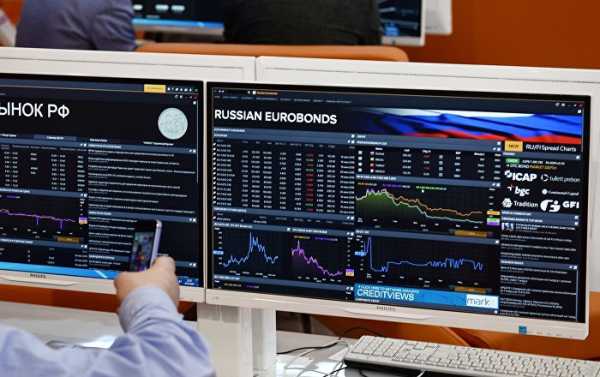
Earlier this year, London threatened to ban the sale of Russian Eurobonds on the London Stock Exchange, with the Russian finance ministry coolly pointing out that the move would have little impact on demand for Russian bond issuances.
Russia may decide not to issue Eurobonds at all in 2019, deputy finance minister Sergei Storchak has said.
“Yes, this is an option. We have the option of not coming out [onto the market],” the official said, speaking to reporters on the sidelines of a meeting in Bali hosted by the International Monetary Fund and World Bank over the weekend.
The deputy minister did not specify the likelihood of such a scenario, saying market conditions would determine its next moves.
Storchak stressed however that the recently-adopted strategy of making domestic, ruble-denominated borrowing the main source of loans was correct, as evidenced by the recent experiences of other emerging market countries. “It’s no joke, since these countries’ expenditures have risen due to the change of interest rates and the appreciation of the dollar,” he said.
In April, the finance ministry issued 11-year Eurobonds worth $1.5 billion, while topping up the Russia-2047 issuance by $2.5 billion. Most of the proceeds from the issuance went to the buy-out of old Eurobonds, with the equivalent of $800 million credited to the federal budget.
The finance ministry has the option of emitting another $3 billion-worth in Eurobonds before the year is out. However, Storchak earlier said that Russia probably won’t be doing so.
Low Debt Load
Economists say Russia has little need for foreign loads in the coming year, given that the country already has one of the lowest debt burdens in the world.
In the first three quarters of 2018, Russia’s foreign debt load fell 9.8 percent ($51 billion) to $467 billion, coming just shy of matching the country’s foreign exchange reserves, which stood at nearly $460 billion in mid-2018.
With the finance ministry enjoying a 3.5 percent budget surplus, thanks to rising oil prices and a falling imports, Russian foreign reserves may climb even further, analysts say.
“It’s unlikely that Saudi Arabia will be able to make up for the supply of Iranian oil, which will face sanctions. Therefore, oil prices will be high, and it won’t be necessary to engage in external borrowing,” Andrei Vernikov, deputy director for investment analysis as Zerich Capital Management, told Sputnik.
Foreign Borrowing Unprofitable
Anton Shabanov, an independent economist and financial analyst, said that that it is unprofitable for Russia to borrow from the Western markets anyway, given the risks of sanctions involved.
“The threat of sanctions, and uncertainty about their format, is something that hangs over Russia. This is a risk for investors, and they demand higher returns, accordingly. Therefore, at this time, it’s not very profitable for us to borrow in the Eurobond format,” Shabanov explained.
Vernikov echoed this sentiment, noting that “relying on the domestic loan market is a good strategy.”
“If you do not reduce the share of public debt in foreign currency, sooner or later, you may find yourself in the same situation as Ukraine or Turkey,” the analyst warned.
In addition to pension funds and the savings of state-owned companies, the finance ministry can take advantage of individual savings. “All that’s necessary is to advertise these tools to the public, and explain to them that bonds are profitable, stable, and a good investment,” Shabanov said.
De-Dollarization
Russia has taken a number of steps in recent months to reduce the country’s dependence on Western financial instruments and institutions and the US dollar.
On Tuesday, the finance ministry reported that it expected the plan on the de-dollarization of the Russian economy to be completed by the end of the year. Last week, the ministry said it was considering switching to using euros for trade with European partners in place of the dollar. On October 3, President Putin said that Washington’s sanctions policy had only served to undermine the dollar’s credibility, not just in Russia, but around the world.
Earlier this year, Russia sold off tens of billions of dollars’ worth of US Treasury bond holdings, dropping out of the top 33 holders. In recent years, Russia has also indicated a preference for trading with other emerging economy nations using national currencies.
Sourse: sputniknews.com






